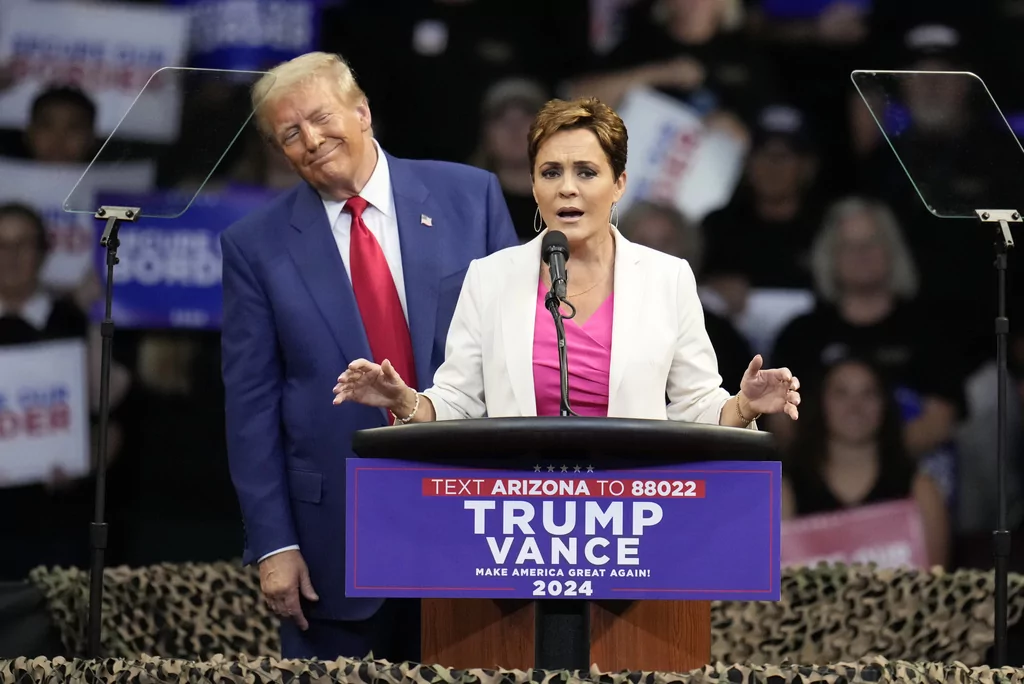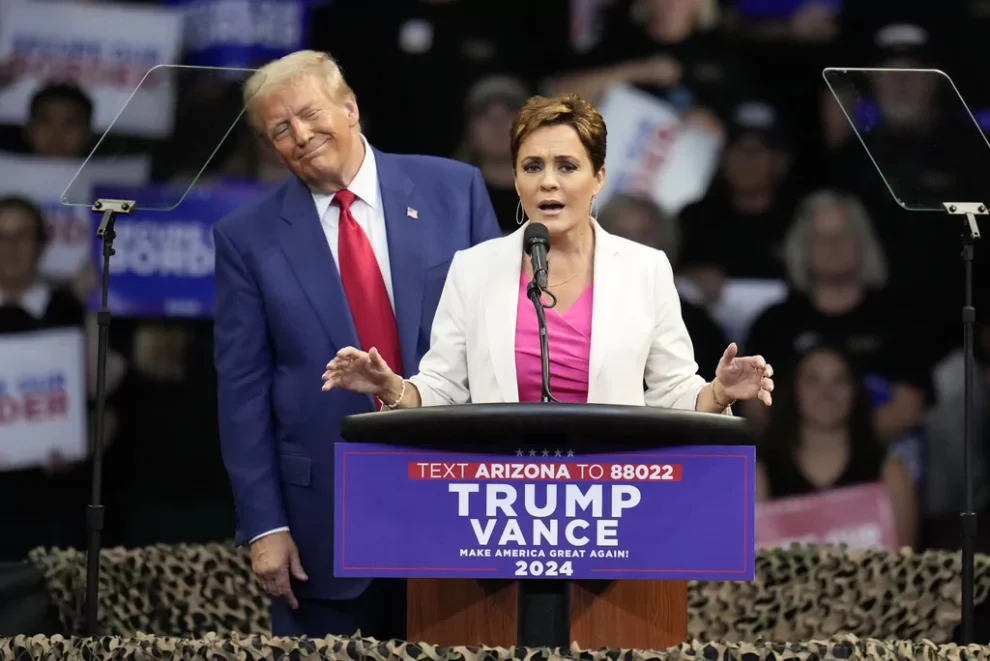Nearly three full days have passed since polls closed in Arizona and voters across the state still don’t know who won the state’s close Senate and presidential races.
As of Friday evening, the winner in the senate race between Republican Kari Lake and Rep. Ruben Gallego (D-AZ) has yet to be declared. The same goes for the top of the ticket, where it remains to be confirmed whether President-elect Donald Trump or Vice President Kamala Harris won the battleground state.
Gallego leads Lake by a narrow margin, while Trump holds a comfortable advantage over Harris. Here are a few reasons why ballots are still being counted, holding up the final results in the two races, and others across the state.

Problems with tabulators
One of the larger counties in the state has run into significant mechanical difficulties with tabulators that have slowed the ballot-counting process.
Cochise County had more than 57% of its ballots left to count as of Thursday evening. A spokesperson for Secretary of State Adrian Fontes’s office said the problem had made it possible to count only a few ballots at a time, per Votebeat Arizona.
Long ballots
A long, two-page ballot used by counties across Arizona has turned the vote-counting process into a lengthy ordeal. The 2024 elections marked the first time in nearly two decades that Maricopa County’s ballots stretched to a second page.
Maricopa County Recorder Stephen Richer said the ballots are subsequently taking nearly double the usual time to process. Roughly 20% of ballots had yet to be processed as of Thursday evening. Delays in Maricopa, the largest county in the state, are subsequently holding up results for the rest of the state.
Late early voting deadlines
Hundreds of thousands of people early voted in Maricopa County alone. However, per state law, their votes weren’t processed before Election Day, and many voters didn’t even drop off their early ballots until Nov. 5, creating huge backlogs in the populous county.
It’s what the state calls the “late-early voter” phenomenon, with voters dropping off more than 225,000 early ballots at Maricopa County polling centers on Tuesday.
“We have a substantial number of voters who take their early ballot and they kind of keep it on their kitchen counter for like three weeks, ” Arizona Republican state Rep. Alexander Kolodin told Arizona Central.
Court order
After Apache County ran into technical problems with ballot printers at over a dozen polling locations, a court order mandated nine sites extend polling closing times by two hours in order to accommodate long lines of voters.
With the hours pushed out, results are still trickling in. A tracker on the secretary of state’s website indicates roughly 25% of the county’s ballots have yet to be processed as of Wednesday evening.
Unclear voter marks
Election officials struggled to process ballots with unclear voter marks in Yavapai and Pinal counties. According to the secretary of state’s data, over 11% of Pinal County ballots and 30% of Yavapai’s have yet to be tabulated.
WHAT HAPPENS NOW THAT TRUMP IS PRESIDENT-ELECT
Yavapai County Elections Director Laurin Custis said Friday, “I know people are clamoring for results, but we are doing the best we can here,”
Sunday marks the deadline or end of the “cure” period for voters notified of problems with their ballots to fix any problems.
























